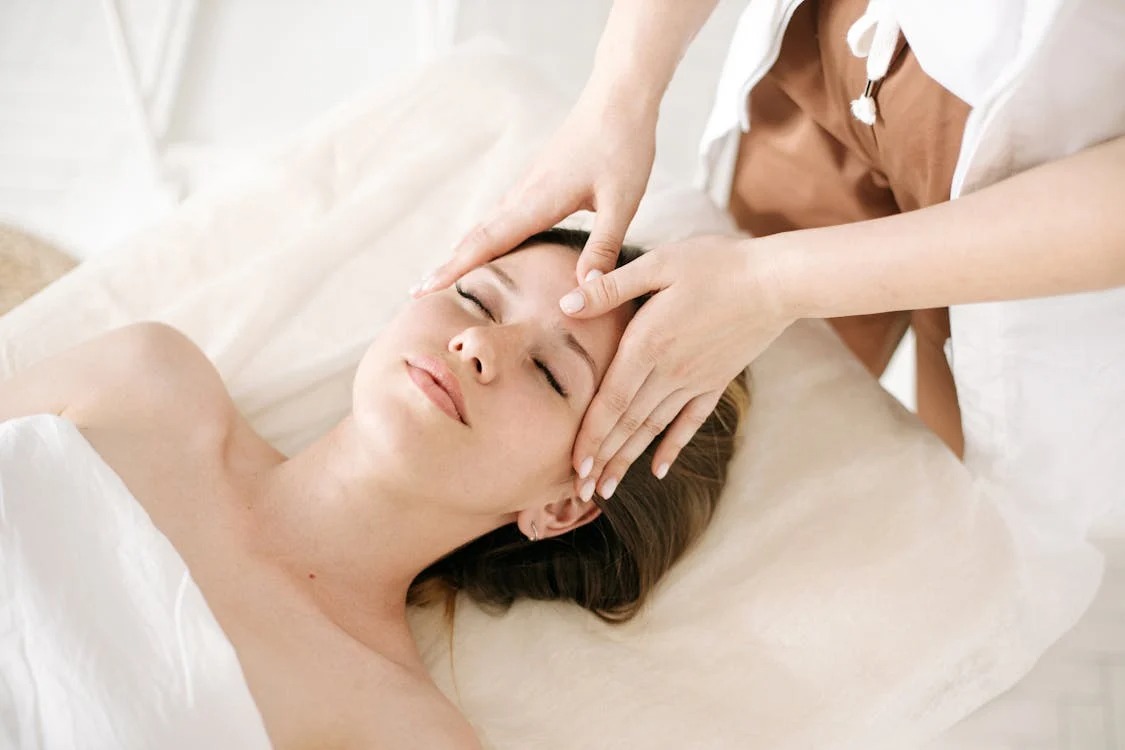Whether through our direct experience or not, the first thoughts we associate with the idea of getting a massage will revolve around relaxation, flexibility, and instant reenergising. And that happens even when using a professional massage chair at home or different types of massagers for our shoulders, lower back or feet.
What happens to your body when you receive a massage
Though our therapists’ healing hands might make us think that the magic happens in our musculoskeletal system, neuroscience shows how behind the relaxation feeling activates through a simple massage lies the release of oxytocin, the bonding or love hormone. An inflow of oxytocin in our body neutralises stress with a profound impact on anxiety states.
What happens to the brain?
The release of oxytocin represents an effect of the improved blood circulation that reaches our brain. Every stroke of our muscles creates impulses dilating our blood vessels. As our blood circulation is increased, oxygen and vital nutrients are transported to our brain, strengthening its functions and consolidating our cognitive health. The outstanding impact of massage therapy on our brain development and cognitive ability is particularly visible in babies. Studies conducted on babies indicate an increase and electroencephalographic activity and the improvement of visual function.
Main benefits of massage for the nervous system
Massage therapy addresses synergies between the Central Nervous System composed of the spinal cord and the brain and the Peripheral Nervous System. Beyond the support it provides to our cognitive capacities, our neurologic system is designed to ensure our connection with our external environment through awareness and adaptability. The stimulating role massage has on our nervous system is reflected into our improved reflexes with a direct impact on our reactiveness and mobility.
Reduce stress
The physiology of stress leads to cortisol, a hormone which in small doses maintains the focus and competitiveness we owe our drive when we follow our goals. However, in high doses, cortisol maintains us in a ‘flight or fight’ mode with massive negative impact on both our physical health, but also in the effectiveness to which we address our daily challenges.
Just one massage, even by using a full body massage chair, is enough to experience stress levels decreasing as our cortisol is neutralised to the point in which we regain our mental clarity and optimism. When integrating massage therapy as a lifestyle routine, we raise not only our energy, but also the capacity to strategise our day to day goals through a sense of calm, discipline and objectivity.
Reduce pain
The soothing feeling of relaxation we experience after getting a massage is in fact produced by the direct effect on the release of endomorphs, the feel good hormone which beyond improving our mood, is also produced by our body as its internal mechanism to fight pain.
Increase parasympathetic response
The release of stress and tension is connected to our parasympathetic nervous system, having our heart rate decelerated to an optimal level, regulating our blood pressure. Benefits of the parasympathetic system also include an increased comfort in how our body responds to functions such as rest and digestion.
Reduces facial and muscular tension
Muscles represent an integrative part of our autonomic nervous system, maintaining our vital functions through the transport of oxygen and nutrients through blood circulation and the elimination of metabolic waste.
Touch activates various receptors, reducing compression, and neutralising nervous blocks with a direct effect on joint and muscular tension. As a distinctive therapy, facial massage is particularly employed for its outstanding rejuvenation effects such as wrinkles softening.

The overall appearance of the skin is improved due to improved skin elasticity, reduced puffiness and inflammation, and enhanced natural glow. Behind such effects find the overall impact on circulation, lymphatic drainage, scar tissue healing, and detox, with a direct effect on product absorption. Beyond aesthetic benefits, facial massages are related to sinus health and stress reduction.
Increase dopamine and serotonin
Beyond its role as a mood regulator, domaine directs affects our memory, concentration and the ability to maintain motivation in regards to our tasks, especially creative or intellectual challenges. As the ‘happiness hormone’, serotonin maintains motivation and enthusiasm for even the most minor joys, being fundamental to our appetite and our ability to fully experience pleasures.
Studies on the physiological impact of massage indicate a direct increase on dopamine and serotonin, against a decrease in cortisol. The outstanding impact on mental clarity is particularly noticeable in the focus gained by athletes after experiencing a sports massage.
Nevertheless, when stimulated through massage, the inflows of serotonin and dopamine also improve our sleep quality.
Increase tissue elasticity
When applied to release muscular tension, the first area reached by massage therapy is tissue stiffness. In addition to addressing muscular knots, massage therapy increases body temperature with a direct impact on circulatory blockages which prevent the affected area from reaching the nutrients it needs for its healing.
Reduce musculoskeletal signs
Especially in their healing phase, injuries can affect the proper flow of our vital functions supported by our musculoskeletal system. The direct impact of muscles also influences bone alignment, improving posture. Furthermore, the effect on blood circulation can also help nourish skeletal cells, increasing skeletal strength. However, the impact of massage therapy on musculoskeletal signs is also noticed in its integration in the care plan for various conditions such as Parkinson’s Disease.
Get a full body massage
As highlighted in the previous paragraphs, a full body massage represents an unrivalled strategy to attain holistic health. The benefits of a full body massage can be recreated through the exhaustive functions found in massage chairs. Even in their standard settings, professional massage chairs present a wide range of intensity and movements which can be further adapted to either the entire body or to specific areas.
